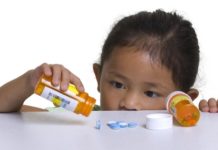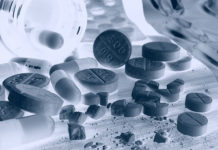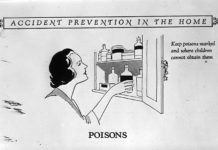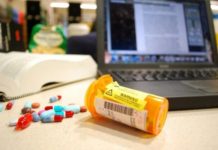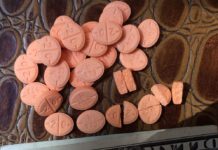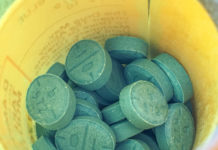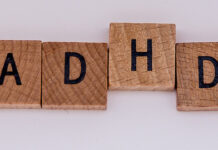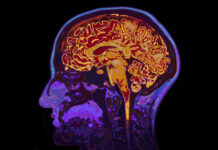ADHD Drugs Linked to Psychosis and Mania
In one analysis, those on a high dose of prescription amphetamines were more than 13 times more likely to develop psychosis/mania.
ADHD Drugs Linked to Cardiovascular Disease
Service users taking drugs to treat ADHD may be at increased risk for hypertension and arterial disease
The Faulty Reasoning That Turned ADHD Into a Disease
Leading ADHD researchers outline four mistakes that turned ADHD from a description of behavior into a medical disease.
Adults Treated for ADHD Report Low Quality of Life
Adults receiving ADHD medications and therapy frequently experience adverse events that interfere with employment and daily life.
Stimulants Don’t Improve Academic Performance in Kids with ADHD
“Efforts to improve learning in children with ADHD should focus on obtaining effective academic instruction rather than stimulant medication.”
Risk of Depression Spikes When Kids Take Ritalin
Risk of depression increased when children were taking methylphenidate for ADHD, but once they stopped taking the drug, depression risk dropped to normal levels.
Medicating Preschoolers for ADHD: How “Evidence-Based” Psychiatry Has Led to a Tragic End
The prescribing of stimulants to preschoolers diagnosed with ADHD is on the rise, which is said to be an "evidence-based" practice. A review of that "evidence base" reveals that claims that ADHD is characterized by genetic and brain abnormalities are belied by the data, and that the NIMH trial of methylphenidate in this age group told of long-term harm.
Study Confirms Overdiagnosis of ADHD in Children and Teens
Medical researchers present evidence that ADHD is overdiagnosed in children and teens, which can lead to significant harm.
Stimulant Prescribing Patterns for ADHD Not Impacted by Scientific Evidence
The article suggests that research challenging the evidence for ADHD drugs does not lead to changes without public campaigns.
Increasing Numbers of Children Prescribed Multiple Psychiatric Medications
According to researchers, children are being increasingly prescribed multiple different psychiatric medications.
Teacher Perspectives on Student ADHD Medication Use
Qualitative study examines patterns in teacher attitudes and knowledge related to medication of students for ADHD-type behaviors.
Children Taking ADHD Drugs More Likely to Take Antidepressants as Teens
Adhering to a commonly prescribed medication for ADHD in children is associated with higher chances of being prescribed antidepressants in adolescence.
Adderall Use Associated with Increased Risk of Psychosis
Twice as many teenagers with ADHD experienced severe psychosis when taking Adderall, as compared to Ritalin, according to a new study.
About 1 in 100 Children Treated with Ritalin Experience a Serious Adverse Event
A recent Cochrane review has found that serious adverse events occur for about 1% of children and adolescents treated with Ritalin.
Rates of ADHD Diagnosis and Prescription of Stimulants Continue to Rise
Two new articles find that rates of ADHD diagnosis and stimulant prescription continue to rise all over the world.
Hallucinations Reported as Side Effect of ADHD Medication
Hallucinations and other psychotic symptoms have been reported after methylphenidate (Ritalin) treatment for ADHD.
Large Increase in Poison Control Calls for Children Taking ADHD Drugs
New data shows that calls to US poison control centers have increased significantly for children taking stimulant ADHD drugs.
Stimulant Drugs Have Adverse Effects on Cognitive Functioning in Healthy Students
Study of students without an ADHD diagnosis finds that stimulants (Adderall) have little impact on cognitive performance.
Despite the Evidence, Overprescription of Stimulants Continues
A new study finds that stimulant prescribing rates to children continue to rise despite the well-established evidence documenting overdiagnosis of ADHD and overprescription of stimulants.
Race and Class Affect Teacher Perceptions of ADHD Medication Use
Study uncovers teachers’ attitudes surrounding ADHD medication use and examines the influence of race and social class on teacher beliefs.
CDC Reports Increased Psychostimulant Prescriptions in Women of Reproductive Age
Psychostimulant prescriptions have increased by 344% (from 2003 to 2015) for women of reproductive age (15-44 years old).
Children Diagnosed with ADHD Younger are More Likely to get Multiple Medications
New research demonstrates that children diagnosed with ADHD at younger ages are more likely than those diagnosed later to receive multiple medications within five years of their diagnosis.
Stimulant Medication Use Linked to Sharp Increase in BMI by Eighth Grade
New evidence suggests that children on ADHD medication may have stunted growth initially but more rapid increases in body mass over time.
African American and Hispanic Youth Discontinue ADHD Treatment at Higher Rates than White Youth
Study examines racial and ethnic disparities in the quality of care for Medicaid-enrolled children starting ADHD medication.
Lancet Psychiatry Needs to Retract the ADHD-Enigma Study
Lancet Psychiatry, a UK-based medical journal, recently published a study that concluded brain scans showed that individuals diagnosed with ADHD had smaller brains. That conclusion is belied by the study data. The journal needs to retract this study.
UPDATE: Lancet Psychiatry (online) has published letters critical of the study, and the authors' response, and a correction.










